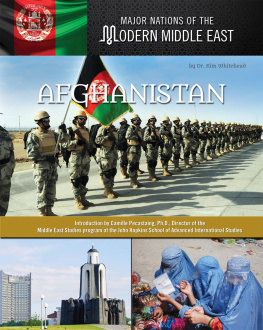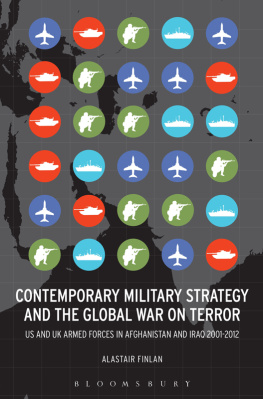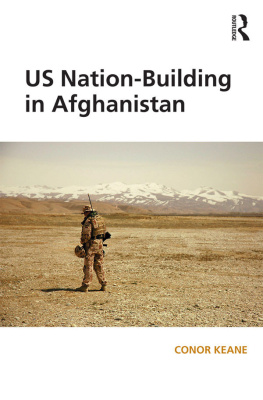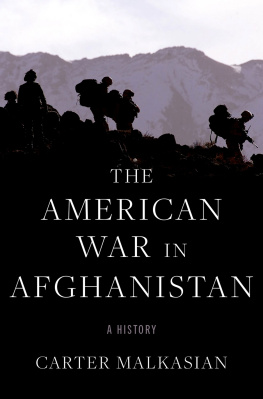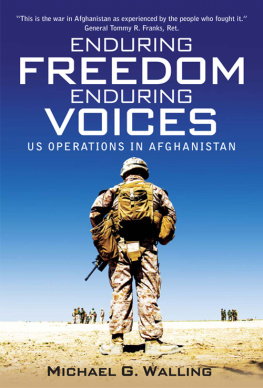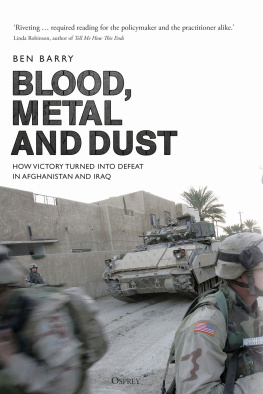Operation Herrick
An unofficial history of
British military operations
in Afghanistan 2001-2014
By
'Sallust'
Copyright 'Sallust' 2015
This book is sold subject to the condition that it shall not, by way of trade or otherwise, be lent, resold, hired out, or otherwise circulated without the publisher's prior consent in any form of binding or cover other than that in which it is published and without a similar condition including this condition being imposed on the subsequent publisher.
The moral right of 'Sallust' has been asserted.
ISBN-13: 978-1519225511
ISBN-10: 1519225512
Dedicated to wonderful nieces Teresa, Sophia, and Isabel.
ACKNOWLEDGEMENTS
The Afghanistan War generated an impressive corpus of books and studies. By the second half of the war, the Afghanistan Conflict Analyst Bibliography had already extended to some 250 pages. It would be impractical to acknowledge all the authors that have helped shape this author's understanding of what was plainly an obdurately complex conflict. It is hoped the footnotes illustrate that they were many. Special mention should be made of some of the outstanding authors in the field. The output of Anthony Cordesman, the Arleigh A. Burke Chair in Strategic Studies at the Center for Strategic and International Relations, was prodigious. Over the course of the war he generated close to one hundred reports, dense with trenchant, honest criticism. Antonio Giustozzi has good claim to be the Afghan expert. His books and studies provided indispensable understanding of Afghan society and recent history. Michael Martin's intimate study of the war from the perspective of Helmandis was frankly outstanding. James Fergusson wrote the first of the reflective works on the war. Frank Ledwidge, a Naval Reservist, wrote the key work challenging British counter-insurgency practice. Emile Simpson, a Gurkha officer, published a brilliant academic study on the nature of modern counter-insurgencies. Retired Generals Christopher Elliott and Andrew MacKay wrote intelligent works that questioned the workings of the MOD. Ambassador Sherard Cowper-Coles, a colourful and controversial personality, courageously challenged the prosecution of the war. Rory Stewart and Gerald Knaus offered the incisive book examining the viability of western interventions. David Mansfield was the well informed voice on the opium trade. Jack Fairweather capped his already impressive account of the Iraq War with an equally comprehensive survey of the Afghanistan War. Two organizations stood out: the Afghanistan Analysts Network (AAN) and the US Special Inspector General for Afghanistan Reconstruction (SIGAR). Both offered honesty in a war unfortunately characterized by dishonesty. The author is especially grateful to the many soldiers who wrote of their experiences in regimental blogs. These were commonly the most honest and insightful accounts of the war.
Special thanks must go to Frank de Planta, an old school friend and former army officer who loyally read through the text and pointed out many errors. This would have been a far poorer book but for this effort. When he was young he used to say: You are lucky in life if you can count on one or two good friends. He certainly proved the case.
The author would also like to acknowledge and thank Yanina and Alexander Goldenberg at Gold Wind Limited who expertly prepared and arranged the e-publication of this book.
To the authors best knowledge, this is the first book to include the Afghanistan War roll of honour and unit lists. This book was written for those names. It is hoped the manuscript honestly recognizes their sacrifice.
Manui Dat Cognitio Vires
CONTENTS
Foreword
Robert McNamara's
11 Lessons from Vietnam
The Afghanistan War was an American war, not a British war. It would have been an omission, then, not to preface this book with Defense Secretary Robert McNamaras 11 Lessons from Vietnam. These are paraphrased below. Reading them, it will be obvious to the reader why.
. We failed to understand our opponents and exaggerated the threat to the United States.
. We failed to understand South Vietnam and viewed the country through the lens of our own values.
. We failed to reckon on the power of nationalism and how it drives people to fight and die for their cause.
. We were deeply ignorant of the history, culture, and society of Indochina.
. We failed to acknowledge the limitations of modern, high-technology war and failed to win the hearts and minds of people from a different culture.
. We failed to involve Congress and the American people in an open and honest debate before committing to war.
. When the war unraveled, we did not credibly explain our strategy or actions.
. We failed to recognize that we are not all-wise and we do not hold a universal mandate to impose our values on other nations.
. We failed to get allies to fully support the US-led war, except in cosmetic ways.
. We failed to recognize that not every problem in international affairs has a solution.
. We failed to organize our own government machinery to effectively deal with the intractably complex nature of the war.
Twenty-six years after the American withdrawal from Saigon, these lessons had been entirely forgotten. Robert McNamara, of course, passed away in 2009, and thus lived long enough to witness the same follies repeated again in Iraq and Afghanistan.
Chapter 1
The Planes Operation
On 14 September 2001, Secretary of State for Defence, Geoffrey William Hoon, rose to address a packed House of Commons. After leaving office he fulfilled this lubricious ambition, taking a senior post in a defence firm, in the customary fashion. From humble origins (the son of a railway worker), Hoon perfectly fitted the mould of the archetypal New Labour politician: the unembarrassed covetous socialist, keen on self-advancement. After leaving school he read law at Cambridge, and subsequently worked as a university lecturer before being called to the Bar. This legal background was evident when he spoke to the House. The performance was measured and he gave the impression that he was rather more concerned with protecting the government from opposition criticism, than in rising to the historical occasion. Rather than reassuring his listeners, he reinforced a growing reputation which the government had acquired for spin over substance.
After expressing condolences to the American people, Hoon informed the House that following the recent terrorist attacks in the United States, his government was prepared and ready to protect the British people. A raft of melodramatic emergency measures was then announced inflated by some hollow boasts. Britain, he stated, had some of the best anti-terrorist capabilities in the world. Robust contingency plans were in place to ensure the safety of Britons. Military units were being placed at immediate notice to move. Anti-aircraft missiles were being readied to protect key sites. The RAF, which was constantly at a high state of readiness, was prepared to intercept all enemies.
No defence secretary had spoken like this since the outbreak of the Second World War and, in truth, it was all eyewash. Historically, the home defence of Britain had always been neglected, except in moments of grave national emergency when invasion threatened. No government had ever sought to spend the funds needed to truly defend Britain, trusting instead in the English Channel and the deterrent of the Royal Navy. This position had not changed in September 2001.
The statement then rambled like a campaign speech. The armed forces were flexible, professional and dedicated. The police were unstinting. The latter had been placed on full alert and were working the longest possible hours. No terrorist would pass undetected. In short, the country should not panic. In a partisan aside the Defence Secretary reminded the House that it was his party that had established a Civil Contingencies Secretariat several months ago in reality an under-resourced office in Whitehall - and that this piece of prescience was now paying dividends . Of course, he went on, we have intelligence expertise and systems in place that are organised to try to prevent these attacks from happening, a vacant claim that would be punctured within a few years.
Next page


